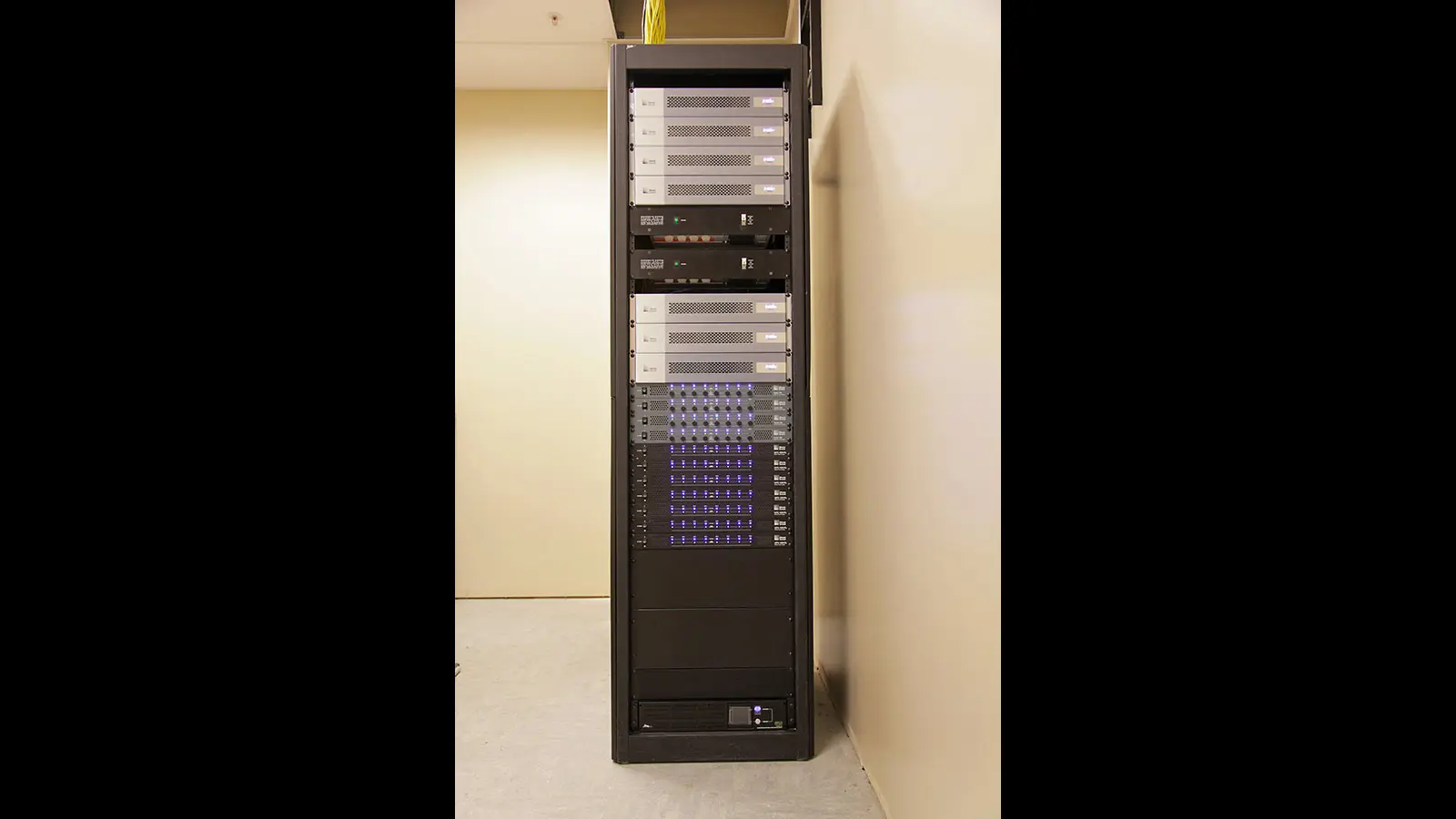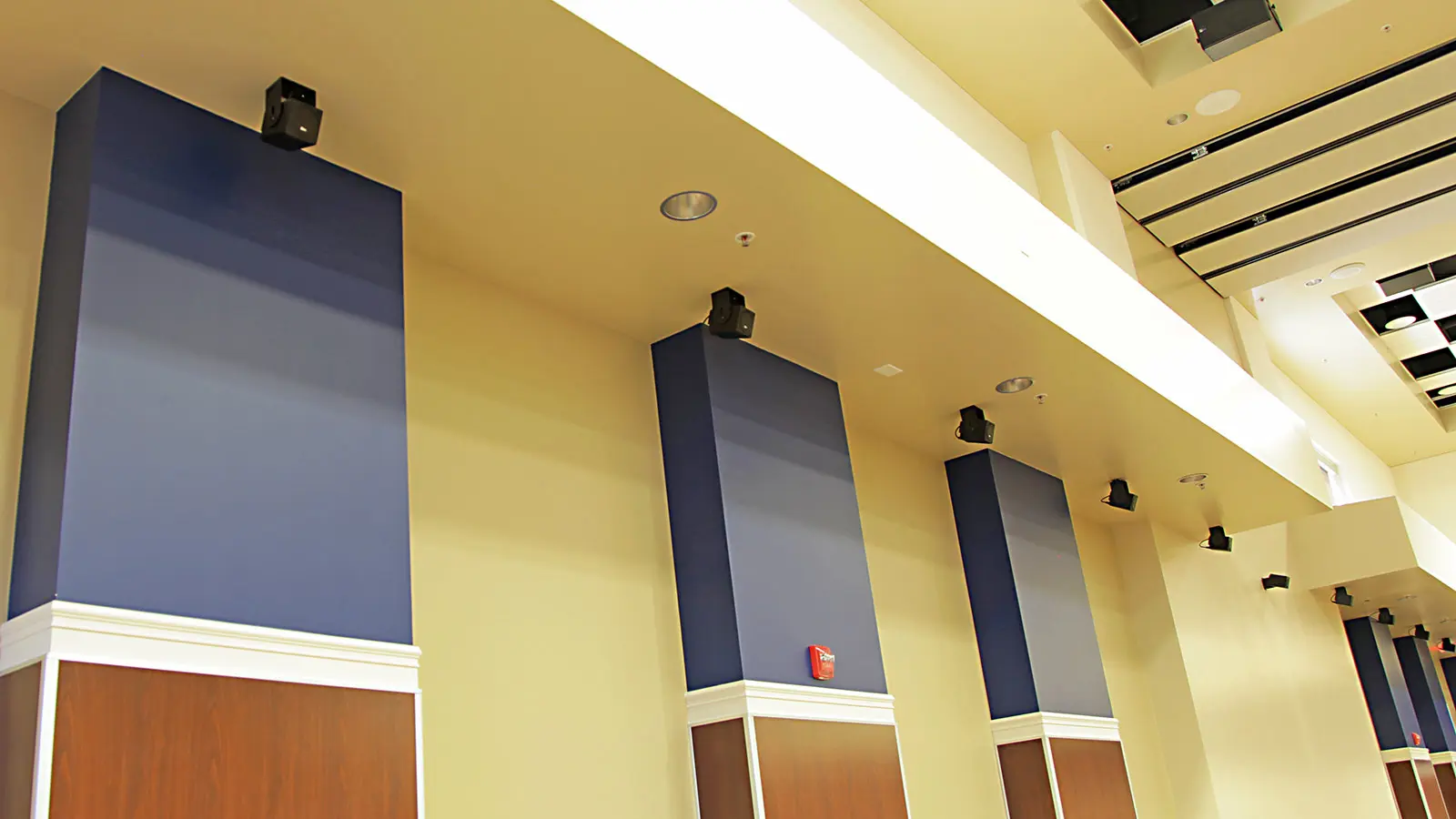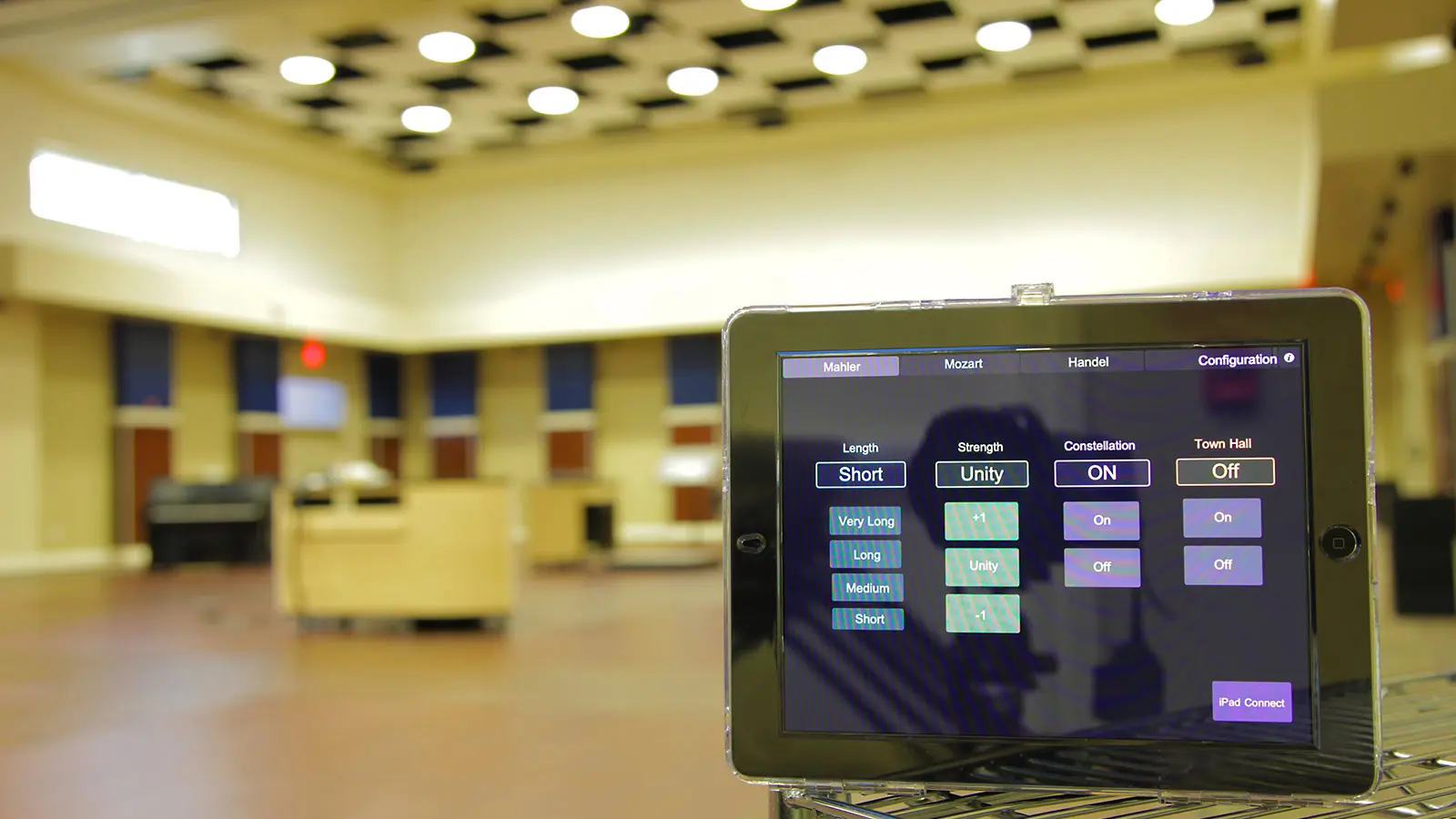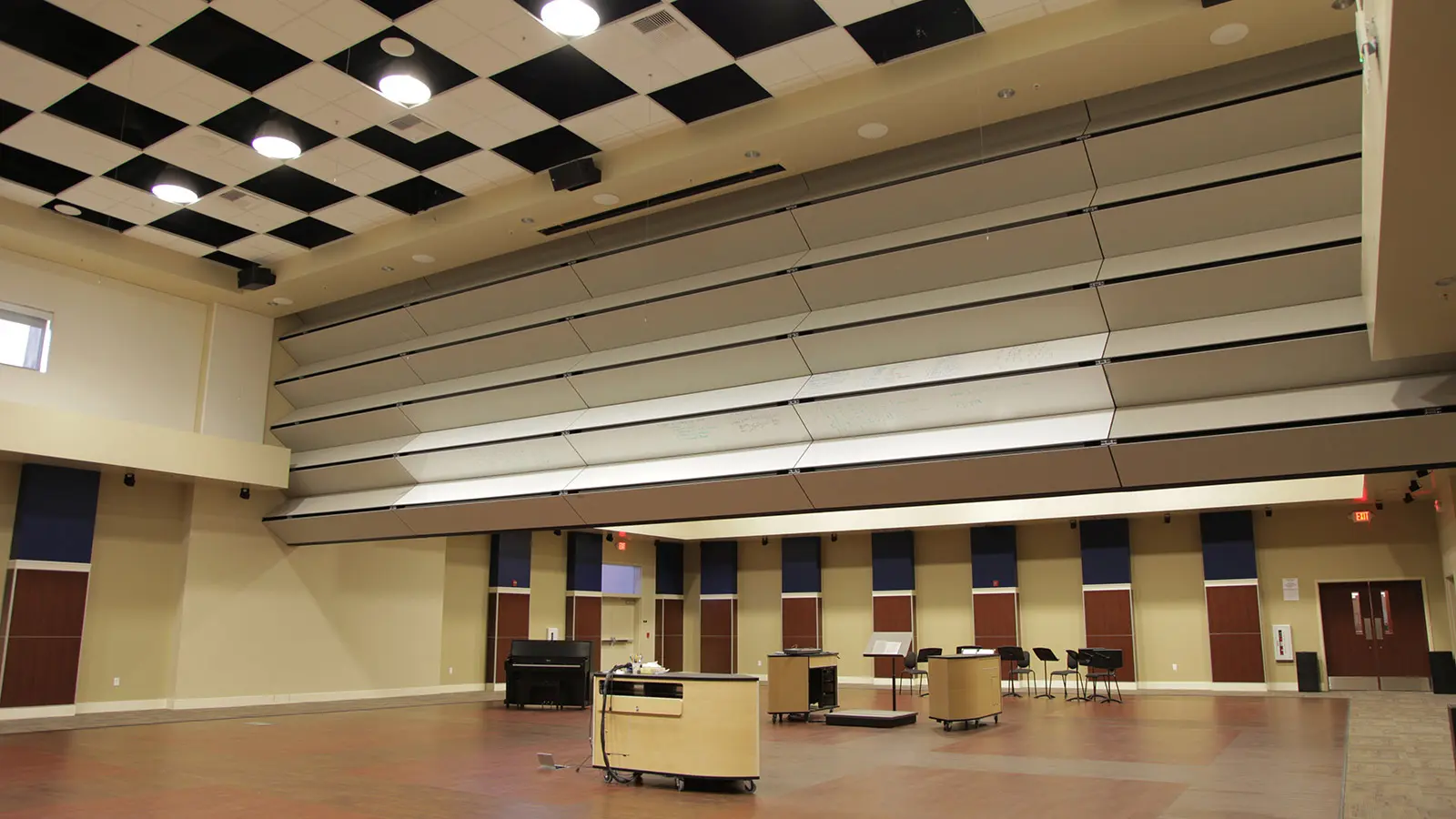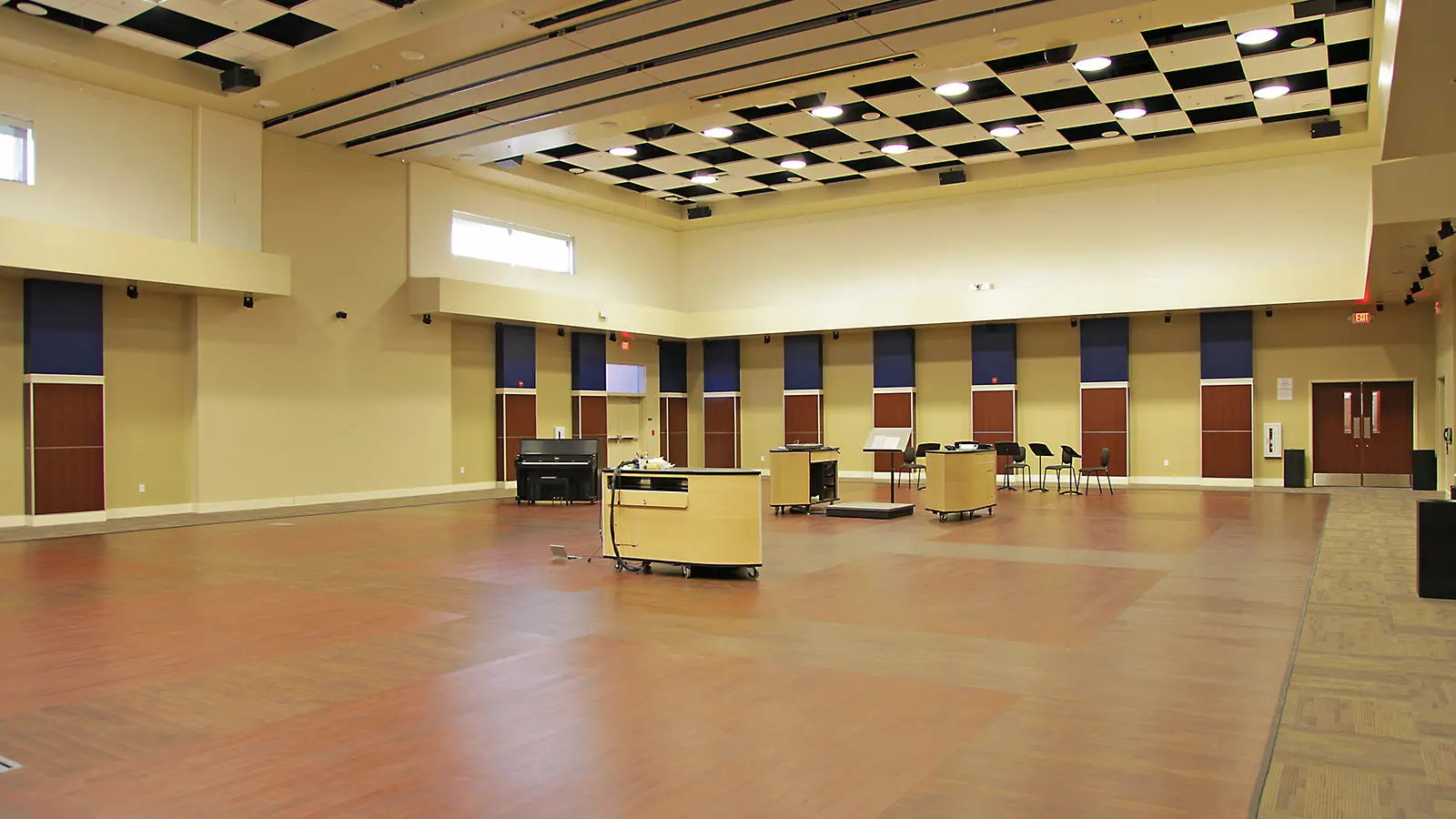I started with Constellation off, and when I turned it on I could see the students' eyes just come alive. When we talked afterward, a trumpet player in the back row said, 'I could never hear the flutes before, but now I can really hear them.'”
Troy GunterVice President & Director, Valley Christian Schools' Conservatory of the Arts
Students at Valley Christian Schools’ Conservatory of the Arts in San Jose, Calif. are honing their musical skills in a high-tech rehearsal and performance facility unlike any other in the country. Completed in late 2011, the new Conservatory building incorporates a multipurpose rehearsal hall that can be used as one large room or divided into two smaller spaces. In any of the three space configurations, the acoustical characteristics can be instantly optimized for music style and ensemble size using the permanently installed Meyer Sound Constellation acoustic system.
“The school wanted acoustics with exceptional variability,” says James Black of Acoustic Dimensions’ San Diego office and principal acoustical consultant for the Conservatory project. “The idea was to accommodate anything from a small string ensemble to a full marching band, either for rehearsals or for performances with temporary seating. We presented options for physical and electronic solutions, and in the end they determined that Constellation offered the degree of acoustical flexibility and quality they needed.”
In the open configuration, the room measures about 60 by 80 feet and can accommodate an audience of up to 250 for a medium-sized ensemble recital. Lowering dual Skyfold walls (forming a four-foot air space between) creates two acoustically isolated rehearsal spaces.
“We’ve had three performances so far: a junior high band concert, a choral concert, and a jazz concert,” says Troy Gunter, vice president/director of Conservatory of the Arts and director of the school’s wind ensemble. “The sound was wonderful, and both performers and audiences loved the entire evening. Constellation’s effect was so natural that nobody noticed anything about the acoustics.”
Meanwhile, Constellation’s value to the learning experience has been very apparent to Gunter. “So much of what you need to learn is listening and adjusting to other musicians,” he says, “and Constellation is providing the optimal environment for doing that.”
At the heart of the school’s Constellation system is Meyer Sound’s D-Mitri digital audio platform, comprising one core processor, two input/output units, and dual VRAS processors hosting the patented de-correlated reverberation algorithms that power Constellation. Mid-high system output is processed through 30 ceiling-recessed Stella-8C installation loudspeakers and 42 surface-mount MM‑4XP miniature loudspeakers, all self-powered, with low-frequency extension through 12 MM‑10 miniature subwoofers.
Twenty-four suspended miniature cardioid microphones are deployed overhead for picking up ambient acoustical sound, and—in a Constellation first—all are retractable into the ceiling to protect them from hoisted flags and color-guard rifles during marching-band rehearsals.
Each room configuration allows selection—via iPads secured to each podium—of short, medium, long, and very long reverberation times. The combined room configuration also offers a “Town Hall” setting optimized for enhanced speech intelligibility without use of a separate PA.
Gunter cites the reaction when he first rehearsed with the wind ensemble in the new room: “I started with Constellation off, and when I turned it on I could see the students’ eyes just come alive. When we talked afterward, a trumpet player in the back row said, ‘I could never hear the flutes before, but now I can really hear them.'”
Also consulting on the Conservatory’s Constellation system were principal architect John Milburn of Milburn Architecture (Granite Bay, Calif.) and general contractor South Bay Construction (Campbell, Calif.). The system was installed by Scotts Valley, Calif.–based Legend Theatrical.


